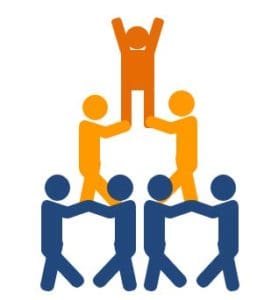Highlights: Engaging Other Campus Community Members in ATOD Work
Lauresa Wigfall from the UMES ATOD Center shared lessons she had learned from building relationships in the campus community. Her partnerships include:
- People who manage logistics for campus events
- School of Pharmacy
- Student organizations
- SGA leadership
- Local health department
- Chief of Police

Key Takeaways:
- Be polite! “Please” and “thank you” go a long way.
- Get out of your silo and be available to work on projects outside ATOD.
- Meet people in person and make eye-contact.
- Meet people where they are. For example, if trying to form community partnerships, go out into the community to talk to people.
- Think of people you would not normally think are interested in prevention work – they might end up being your biggest collaborators!
- Ask for help when you need it.
- Keep open lines of communication with campus and community
partners and share information when you get it. - Building partnerships does not happen overnight. Keep reaching out.
Give it time. - Do not give up. Someone is always listening to your message even if you are unaware at the time.
- Work on capacity building with everyone. No one is too big or too small to connect with.
- Do not be afraid to ask experts in other areas for help.
- Work smarter, not harder!
Other Takeaways:
- Learn to say “No” if there is too much on your plate.
- Use MD-CAS data in setting your agendas. For example, rely on your strategic objectives when trying to decide which tasks to take on.
Highlights: Engaging Other Campus Community Members in ATOD Work
Lauresa Wigfall from the UMES ATOD Center shared lessons she had learned from building relationships in the campus community. Her partnerships include:
- People who manage logistics for campus events
- School of Pharmacy
- Student organizations
- SGA leadership
- Local health department
- Chief of Police

Key Takeaways:
- Be polite! “Please” and “thank you” go a long way.
- Get out of your silo and be available to work on projects outside ATOD.
- Meet people in person and make eye-contact.
- Meet people where they are. For example, if trying to form community partnerships, go out into the community to talk to people.
- Think of people you would not normally think are interested in prevention work – they might end up being your biggest collaborators!
- Ask for help when you need it.
- Keep open lines of communication with campus and community
partners and share information when you get it. - Building partnerships does not happen overnight. Keep reaching out.
Give it time. - Do not give up. Someone is always listening to your message even if you are unaware at the time.
- Work on capacity building with everyone. No one is too big or too small to connect with.
- Do not be afraid to ask experts in other areas for help.
- Work smarter, not harder!
Other Takeaways:
- Learn to say “No” if there is too much on your plate.
- Use MD-CAS data in setting your agendas. For example, rely on your strategic objectives when trying to decide which tasks to take on.
